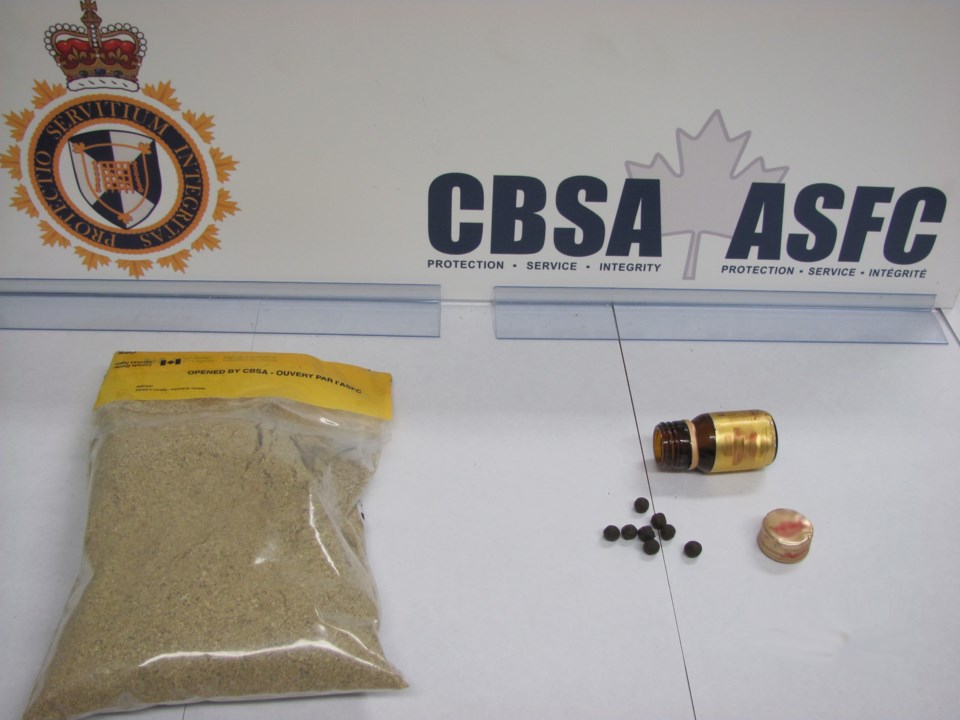Traffic volume was down at the North Portal border crossing in September according to figures released by the Canada Border Services Agency (CBSA) this past week.
There were eight per cent fewer travellers than last year (23,938 travellers total) and 7,793 cars, down from 7,822 in the same period last year. Commercial trucks processed were also down by 11 per cent, or 7,821 in total.
At the Estevan Highway port of entry, vehicle traffic was down five per cent from the previous September with 7,746 travellers in 2,729 vehicles. Commercial truck traffic remained considerably higher in September with volumes 30 per cent above last September's total. Last year there had been 185 commercial trucks passing through the Estevan/Noonan Highway port compared with 236 this year.
Travellers imported 197 vehicles and trailers during the month of September, compared with 239 last September.
The CBSA said they would like to remind travellers that the penalties for smuggling and undervaluing goods are severe and often include the seizure of the vehicle. The minimum penalty that can be assessed for the return of a vehicle used to commit a Customs Act offence is $1,000. Aggravating factors such as the number of seized goods, the type of commodity, intent to conceal, and previous infractions increase the amount that must be paid for the return of the vehicle. The following incidents highlight these consequences:
On Sept. 1, CBSA officers found an Alberta resident to be in possession of a small amount of cocaine. The drugs were seized and a $400 penalty was assessed.
On Sept. 2, a person from Massachusetts was entering Canada on his way to Alaska for work. During a routine examination, CBSA officers found several prohibited ammunition magazines as well as a prohibited knife (switchblade). These items were seized, along with his vehicle. A $1,000 penalty was assessed for the vehicle's return.
On Sept. 17, a Missouri man was arrested for smuggling a .22 calibre revolver and a 12 gauge shotgun. The revolver was located near a fridge in the van and the shotgun was in an overhead storage bin above the driver's seat. The man was issued a $1,490 penalty and refused entry into Canada.
On Sept. 18, a Saskatchewan resident was importing several horses. During an examination, it was determined two horses had been undervalued by a total of $900. The horses were seized and the importer was given a $485 penalty for their return. Had the horses and values been properly reported, the importer would have paid $44 in GST.
On Sept. 28, CBSA officers seized seven firearms and one ammunition magazine from Arkansas resident Antonio Demetrius Esaw. He was arrested and charged by CBSA for smuggling. He pled guilty in a Regina courtroom on Oct. 4 and was sentenced to time served plus 30 days. He was also fined $5,000 and ordered to pay a civil fine of $4,500 for the return of the vehicle.
On Sept. 8, a British Columbia resident was returning to Canada following a five-day absence. During the examination, the CBSA officers seized 163.8 grams of doda and 8.7 grams of opium. The narcotics were seized and he was penalized $3,900.
CBSA officers processed 100 work permits, 15 student permits and 36 permanent resident permits in September. CBSA officers refused entry to 58 people, averaging almost two per day during the month. The people involved were denied entry for a variety of reasons ranging from serious criminality to being required to produce documents. Some notable cases:
On Sept. 3, a couple from Nebraska sought entry to vacation in Saskatchewan. CBSA officers suspected the driver was impaired and administered a roadside alcohol screening test which she failed. She was arrested and referred to the RCMP. CBSA officials found and seized 5.25 litres of undeclared alcohol and two undeclared pepper sprays.
On Sept. 9, a resident of Missouri was travelling with a Canadian resident to vacation in Saskatchewan for a couple of weeks. CBSA officers examined their vehicle and determined they were carrying goods that were inconsistent with a short visit. Officers also found a marriage certificate involving the Missouri traveller and the Canadian's son who later arrived at the port on foot. An exclusion order was issued against the Missouri resident for being an immigrant without a visa.




